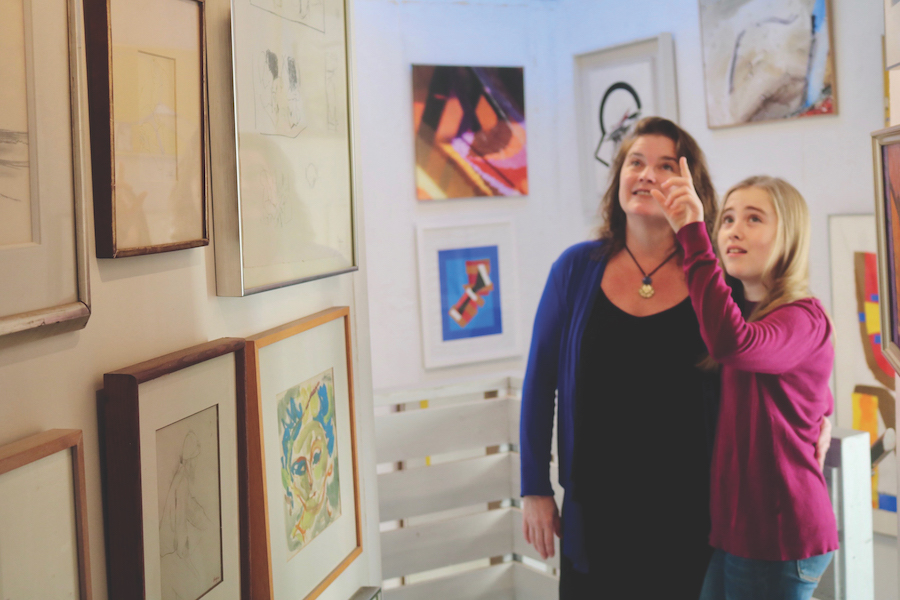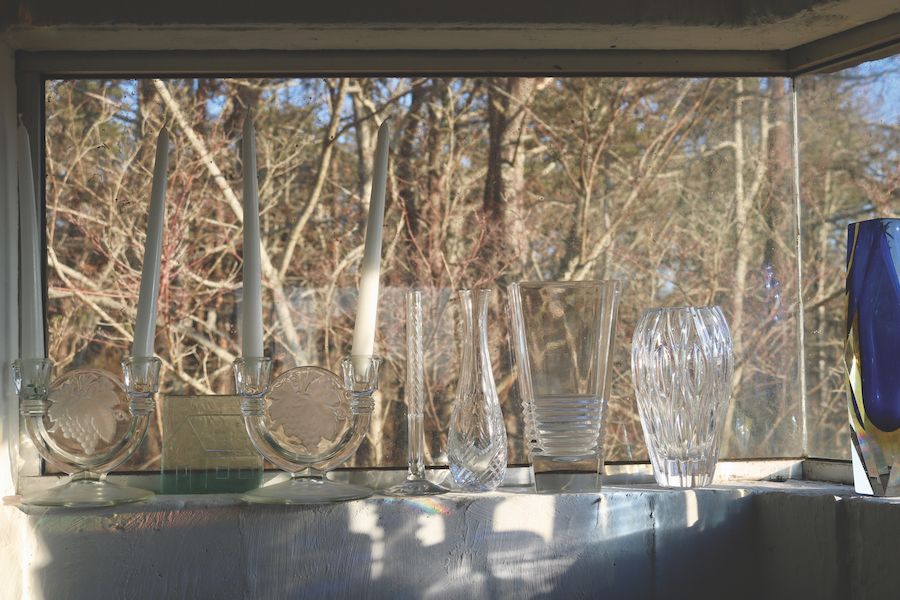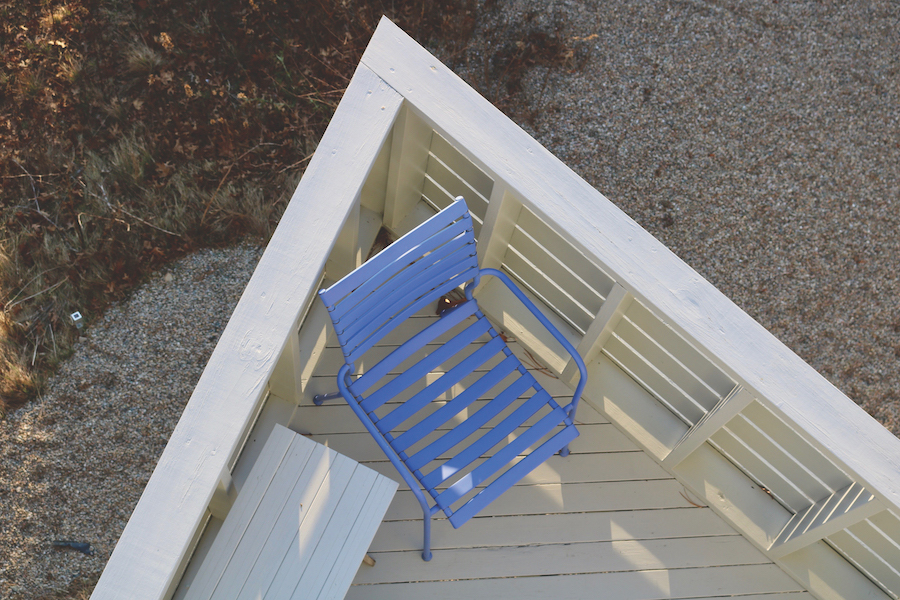TRURO — Decades of neglect have turned an artist’s studio built by designer Charlie Zehnder into an attractive nuisance, according to its new owners, who want to demolish it. Following a public hearing, the historical commission declined to order a one-year demolition delay.
Paul and Amy Holt, Newton residents who plan to build a 4,000-square-foot house at 113 Castle Road, say the studio is in the way of where they want to put the house.
The studio, built by Zehnder in 1979, is an example of the distinctive mid-century modern architecture found on the Outer Cape. The historical commission could have delayed demolition for up to 12 months under the town’s historic preservation bylaw.
Zehnder designed houses and studios here from 1958 until his death in 1985. His work reflected his interest in Frank Lloyd Wright, Thomas Jefferson, and even the concrete bunkers of Normandy, the authors of Cape Cod Modern wrote.
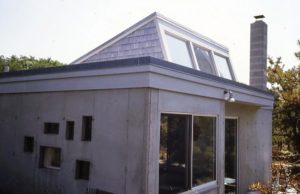
The mid-century modern style is characterized by the use of simple geometric shapes, clean lines, easily obtainable materials, large windows, open floor plans with a focus on functionality, and an effort to blend buildings into their natural settings. Zehnder was frequently called on to design studios, sometimes tucked into the woods, to serve as retreats.
He built the studio in question for a member of the Rothschild family, who owned a home on 11 acres at 105 Castle Road. The Rothschilds owned the property until recently, when it was divided into four lots and sold. The Holts paid $575,000 for their 3.5-acre lot in February. They want to site the house to have a view of the bay from a widow’s walk. That plan, however, put the house about 11 feet from the deteriorating studio, with its collapsed roof and broken windows and stairs. The concrete walls remain intact.
During a first meeting with the historical commission on July 7, Vice Chair Chuck Steinman suggested an alternate site for the house that would allow the studio to remain. It could be restored, he said, making a nice guest house or art studio.
The Holts used a drone to study the views from the two locations and rejected Steinman’s suggestion. “The view of the bay was part of the attraction of the lot,” said Amy Holt.
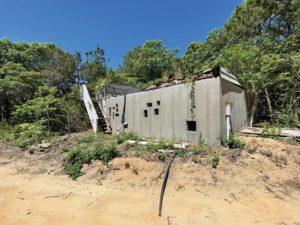
Attorney Victoria Dalmas, representing the Holts at the hearing, said it would be a hardship for them to move the house site. “The intended purpose of the studio was an artist’s retreat, not for public visibility,” Dalmas added.
As a nod to Zehnder, the Holts were considering placing a birdhouse — “a beautiful miniature” of the studio — with a plaque on Castle Road. “We think that would be a compelling way to honor Charlie Zehnder,” Dalmas said.
Chair Matthew Kiefer said the commission could do no more than delay the demolition while alternatives are explored. “We can’t require you to site the house differently or save the studio,” he said. State tax credits could help recoup some of the cost of preserving and restoring the studio, Kiefer added.
Steinman said he would have liked to see the studio preserved, but, based on its dilapidated condition — not the Holts’ fault — he was ready to vote.
Steinman, Kiefer, David Kirchner, and James Summers voted not to impose a demolition delay, giving the Holts the four votes they needed. Richard Larkin and Amy Rolnick cast dissenting votes. Member Bart Mitchell was not present for the vote.
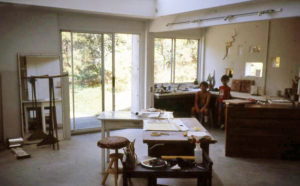
The demolition drew criticism from architect Peter McMahon, founder of the Cape Cod Modern House Trust, which restored Zehnder’s Kugel-Gips house in Wellfleet. McMahon told the Independent the studio is one of just four structures designed by Zehnder that are made of poured concrete.
“With a bit of effort and creativity, they could have incorporated it into a new structure,” McMahon said. He expressed outrage at the birdhouse idea, saying it was “very disrespectful” to Zehnder.
Historical commission members didn’t like that suggestion either, saying they would prefer a sign with a photograph of the original studio.
